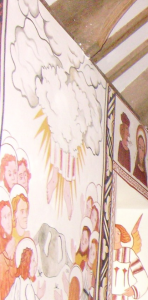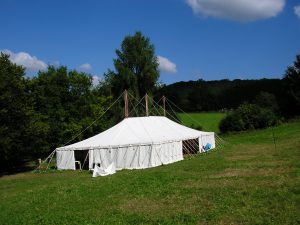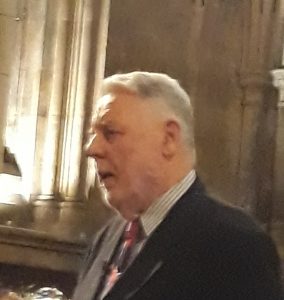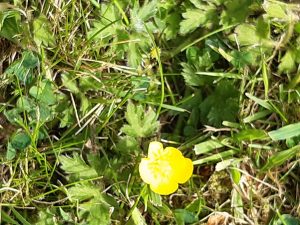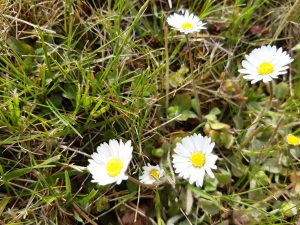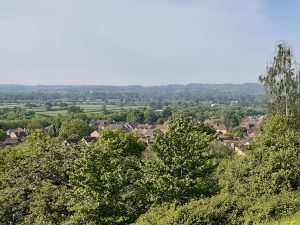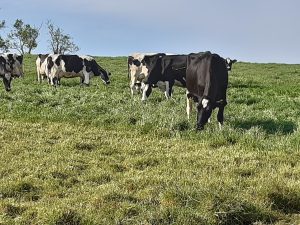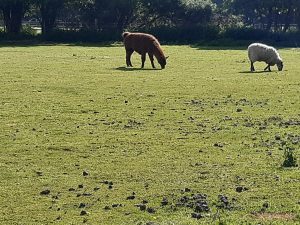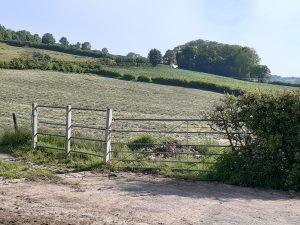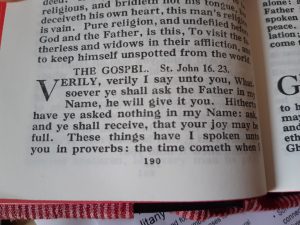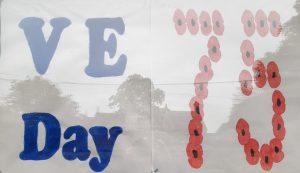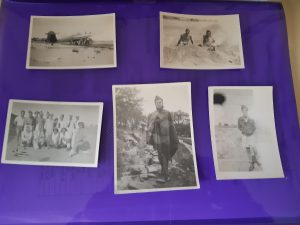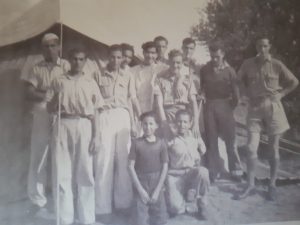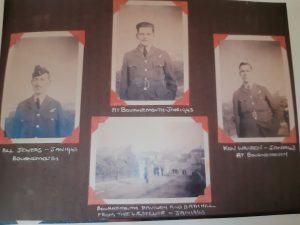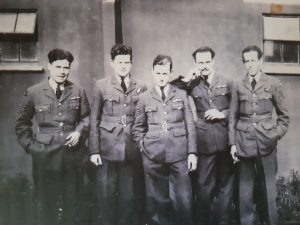Pentecost Service available via https://www.youtube.com/watch?v=EoO8HaTfNUY
Acts 2:1-21 – John 19:19-23
Come Holy Spirit, fill the hearts of your people and kindle in us the fire of your love. Amen
 When it comes to talking about the Holy Spirit, both we and the Bible tend towards using pictures that are aspects of our living natural world. At the very beginning of our Bibles – the spirit of God is described as moving over the water at creation, and in different translations have that as a mighty wind of God. Jesus also talks about the spirit as working like the wind. In a conversation in John’s gospel with the jewish leader Nicodemus, which we thought about back at the beginning of Lent has Jesus saying.
When it comes to talking about the Holy Spirit, both we and the Bible tend towards using pictures that are aspects of our living natural world. At the very beginning of our Bibles – the spirit of God is described as moving over the water at creation, and in different translations have that as a mighty wind of God. Jesus also talks about the spirit as working like the wind. In a conversation in John’s gospel with the jewish leader Nicodemus, which we thought about back at the beginning of Lent has Jesus saying.
The wind blows wherever it wishes; you hear the sound it makes, but you do not know where it comes from or where it is going. It is like that with everyone who is born of the Spirit
Another aspect of the natural world we use is our breath, in the evening of the first Easter day as we heard in our second reading. Jesus appeared to his disciples and said
“Peace be with you. As the Father sent me, so I send you.” 22 Then he breathed on them and said, “Receive the Holy Spirit”.
And then a final aspect of the natural world we use is fire. Our first reading today captured that as it said that after the noise like a strong wind blowing. They saw what looked like tongues of fire, which spread out and touched each person, and this happened at the moment they were filled with the Holy Spirit.
From the very start of Jesus ministry, the Holy Spirit is associated with fire (passion, enthusiasm, action). John the Baptist said to the gathered crowds early on in Matthew’s gospel
I baptize you with water to show that you have repented, but the one who will come after me will baptize you with the Holy Spirit and fire.
We use all these pictures for the Holy Spirit from the living natural world for a variety of reasons. Firstly, it helps us make something that is difficult to put into words more tangible. What the Holy Spirit is and is all about is difficult to understand All these things wind, fire, water and breath are living and variable – as the nature of God’s Holy Spirit with us is living and variable.
Secondly, with wind and fire, water and breath – there are aspects of otherness about these things too and things that are beyond our control. Watching the flames dance on an open fire, when cosy and warm – can bring renewal, but fire can also burn wildly and burn things up, remember the bush fires reaping great destruction in Australia at the beginning of this year. With the wind, the Spirit of God, can be like a cooling breeze on a hot day bringing refreshment, but also an icy blast with serious wind chill on a cold winter’s day can be disturbing and hurry our action. With water having a nice warm bath or a refreshing shower is good, but any experiences we have had of the damaging effect of too much water through flooding, reminds us how powerful water can be. Then with breath – Taking a deep breath in, can help us to pause and inspire our thought, but being in a situation where we are struggling for breath can be extremely scary…
In short what the Holy Spirit of God wants for us is always for our good, but not necessarily comfortable or cosy. Though God’s love for us should be a great comfort and strength, the way the Holy Spirit works in us and through us at times can be challenging too. If you like faith brings comfort not a comfort blanket God will give us the strength we need for each day.
To continue to use the natural world analogies: we need to welcome the warm breeze of the Spirit as well as the icy cold winds of winter to help us. For us the people who know Jesus as Lord, we see in this hope, the Spirit of God moving from death to life, encouraging and urging us on. All movements of the Holy Spirit we experience point us to Jesus and the work he did for all of us through his life, death and resurrected new life. The work of the Spirit he left with us to keep sharing his love with others and to give us God’s love that lasts forever
Looking at how the Spirit works – there is no better example than in the disciple Peter. Just see how it gripped Peter in the story of the first Pentecost that Gill read us. By this stage Peter is totally reliant on God, and acting in accordance with God’s will for him and encouraging and amazing things are happening all around him. He is really open after the difficulties of his journey to this point. We see the disciple Peter stand up and speak out for the first time. He is such a good example of the empowering of the Spirit, building on the gifts that Jesus saw in him and the impact of his journey up to this point.
Remember Peter was not a practiced public speaker, but a fisherman made good by the power of the Holy Spirit in him. He proclaims how God will pour out the Spirit upon all flesh – irrespective of age, gender, slave or free. Giving us the real sense that the Holy Spirit is for everyone and can transform anyone, as we reflect on the power of the Holy Spirit moving in our lives. We can be thankful for all that God has worked in us through his Spirit and open our hearts to being as reliant on God as Peter was. It is important to be listening to God’s urging of us through the Spirit and acting and being encouraging on our journey onwards. Being thankful for the work of the spirit in others, who have encouraged us on our journey is also part of it.
From the events on the day of Pentecost, a little further on in Acts it says 3000 people were inspired to believe and be baptised by what happened on the day of Pentecost. How the Spirit worked in everyone and how the Spirit worked through Peter, it must have been amazing to be part of it. When God works like this it is amazing and in our own way and with the Spirit working in us, we can be amazing too. We have to open to the Spirit’s guidance, reliant on God and then encouraging others.
In our current circumstances being open to the Spirit’s guidance, reliant on God and encouraging others will also help us with the trials and tribulations of our strange times too.
I am going to end with a time of reflective prayer
Sit very still and become aware of your breathing.
As you breathe in, think of God.
As you breathe out, think of the world.
Repeat this at least three times.
As you breathe in now, give thanks for the peace the Spirit brings.
As you breathe out, pray for peace in the world.
Repeat this at least three times.
As you breathe in, receive from God what he has for you.
As you breathe out, ask what you should do.
Repeat this at least three times.
Keep a few moments of quiet and conclude:
Come, Holy Spirit, come now.
Amen.
References
Prayer adapted – copyright © rootsontheweb.com
New Revised Standard Version Bible: Anglicised Edition, copyright © 1989, 1995

